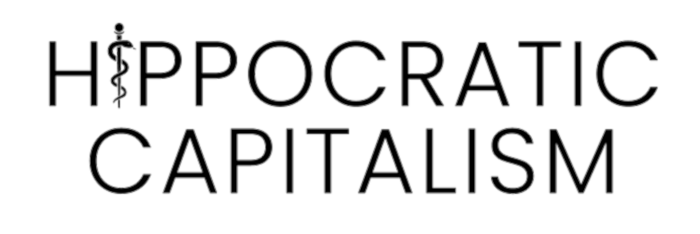Healthcare is a Calling.

Lisa Rosenbaum is a cardiologist and medical humanist who frequently writes for the New York Times. Last week, the New England Journal of Medicine published an essay of hers that explored whether doctors still see medicine as a calling, as opposed to a job, and whether this is a good or a bad thing. Some young physicians she interviewed rejected the term “calling,” not because they aren’t motivated by serving patients (they clearly are) but rather because they equate “medicine” with the medical industrial complex, and that’s not a calling they’re interested in accepting.
Rosenbaum also explored the theme of exploitation. When medicine is broadly understood to be a calling, it can give moral cover to those in power to exploit and mistreat workers. Inside residency programs, this can take the form of programs demanding the sacrifice of residents’ personal lives and relationships and health, both physical and mental, as the cost of admission to the sacred profession of medicine. Inside healthcare megacorporations, it can take the form of publicly celebrating front-line workers for their dedication and sacrifice, while at the same time underpaying, understaffing, and generally undermining those same workers in the pursuit of profits for shareholders and top executives. Referring to medicine as a calling could also support cultural pressure against physicians organising into unions. (NB: Even some clergy, in the most called profession of all, have begun to join unions.)
On the other hand, Rosenbaum suggests that losing the sense of calling could contribute to a lack of commitment. She interviewed a residency program director who described residents blowing off required educational activities, something the director would have been horrified to imagine doing back in her own residency.
In the end, Rosenbaum didn’t want to judge, considering everyone’s orientation to work, even medical work, to be a matter of personal choice. Yet she clearly believes that some important cultural element has been lost: “Why does believing that the sacrifices trainees and physicians make are worthwhile feel increasingly taboo?”
I think she’s right on both points. Judging each other’s inner motivations doesn’t get us very far. But when the motivations stem from deeply held values, then those values can and ought to be part of social discourse. And while it’s true that a sense of calling can be exploited, just like any other intrinsic motivation, that’s not an excuse to reject it. The stakes here are not just warm, fuzzy feelings. When we lose the shared language of values, we lose society.
A wide range of motivations impel people to work, and to create art, and to volunteer, and to perform any other regular activity. Economists tend to focus on money as a primary motivator, but is that really the main reason people dedicate themselves to their careers? In her article, Rosenbaum quotes from an Atlantic article by Derek Thompson on “workerism,” presented as a secular alternative to faith and religion. Personally, I find that harsh. Everyone seeks meaning in life, and for many of us, jobs and careers provide a significant portion of that meaning. Knowing that you’re part of a larger effort accomplishing something socially constructive, well, that feels good to people. Obviously it requires that the work you do actually benefits society, either society at large, or your customers, or your co-workers. I have a friend who once told me about trading commodities for a Wall Street firm. He said that on any given day, you might end up with a promotion if your boss happens to be fired for underperformance. But of course you could also underperform and be fired yourself. Everything at that firm was based on measuring individual performance, which is to say profits. You many not be surprised to hear that he didn’t stay long in that firm.
So what about the argument that inner motivations can be externally exploited? Sadly, most of the good things in this world are regularly exploited, but that doesn’t make them any less good. Interpersonal trust and a sense of community are good things, even though Bernie Madoff exploited them to defraud people. Faith (however you choose to define it) is a good thing, even though faith has at times been degraded by both cult leaders and sex abusers. As for the practice of medicine — the calling of medicine — we should have no doubt of its value, even if those in power sometimes diminish it in the extortion of labor. Physicians and other health professionals shouldn’t have to choose between decent working conditions and a sense of meaning in the work they do.
